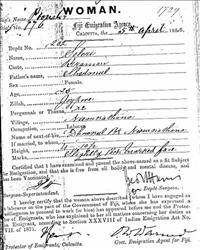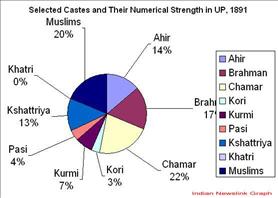 The Indian government announced in January that it would work intensively to help People of Indian Origin (PIO) in locating their roots in India.
The Indian government announced in January that it would work intensively to help People of Indian Origin (PIO) in locating their roots in India.
This announcement is a boon for Indo-Fijians, who are victims of their tragic history.
It is rare for the members of the Indian community to search for their roots.
The Indian subcontinent has had the misfortune of being ruled by foreign powers for hundreds of years and Indians suffered in the process, violation of their freedom, rights, liberty and justice. A subjugated race does not have the liberty to choose its destiny and shape its future. India was ruled by the Moguls and British, making the indigenous race largely meek, submissive and compliant.
The struggle for survival made other issues irrelevant and unimportant. Drought, famine and floods that often ravaged parts of India, added to the misery. Consequent poverty drove individuals, friends and families to different parts of India and the world.
They subsisted on hope but many became victims of their choice, never to reunite with their loved ones.
In 1834, following the cessation of slavery in the British Empire, the British government found it impossible to replace the labour needs of its colonies and hence introduced the indenture system and recruited Indians.
More than 1.2 million Indians served the British government as indentured labourers, largely working in the sugarcane plantations. The conditions were akin to the system of slavery but had a fixed, five-year term.
A lost generation
My grandparents, who were from Uttar Pradesh were recruited to serve as indentured labourers in Fiji in 1908 and served their five-year term, but could not return to India.
They could not afford the passage and did not qualify for free return fare until they completed ten years of residence in Fiji. Like most other compatriots, they decided to make Fiji their home.
They often spoke about their loved ones in India but being illiterate, were unable to maintain regular contact. My grandfather took his longing to his grave but my grandmother lived to witness her grandson (me) make that memorable journey to trace the family roots in 1974.
The heart-breaking journey was captured in my book, Tears in Paradise that brought tears to many eyes and inspired some to trace their roots in India.
 When I entered the family enclave, I was caught in a swirl of emotions for which I was not prepared. Over 30 years have passed since this momentous event but the memories refuse to fade. Thousands of miles away from my home in a small island of Fiji, I stood on the hallowed ground that was the origin of my family roots.
When I entered the family enclave, I was caught in a swirl of emotions for which I was not prepared. Over 30 years have passed since this momentous event but the memories refuse to fade. Thousands of miles away from my home in a small island of Fiji, I stood on the hallowed ground that was the origin of my family roots.
I recalled that blustery night of May 1908 when my grandparents secretly escaped from the family enclave and landed in Fiji.
My accidental presence found me in disbelief, confounded, confused but elated.
I submitted myself to the storm of varied emotions that coursed through my heart and mind. As we sat on the platform fixed to the drawbars of the tractor and slowly drove away, my family members followed us in bidaai for a considerable distance.
I wept with my face buried in my handkerchief.
That scene led to my first book, Tears in Paradise.
The above article appeared in our May 15, 2009 issue to commemorate the 130th Anniversary of Girmit in Fiji.






